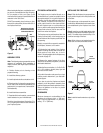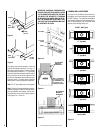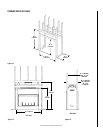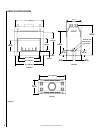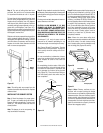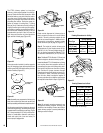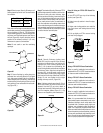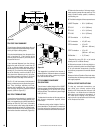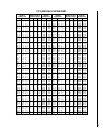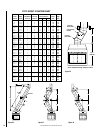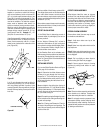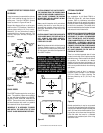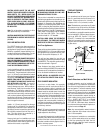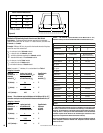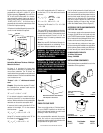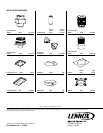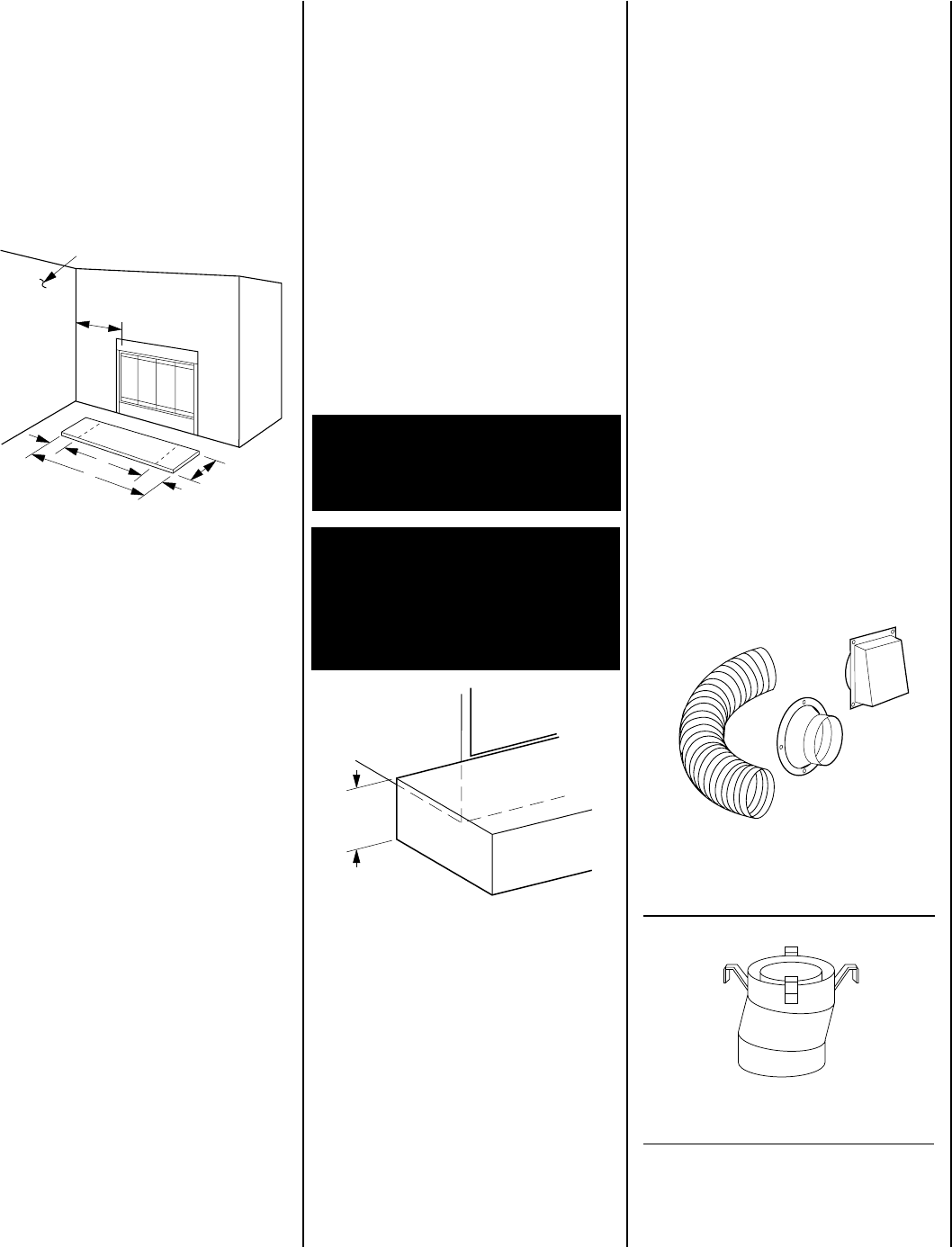
NOTE: DIAGRAMS & ILLUSTRATIONS NOT TO SCALE.
19
Model Part Number Weight
LS43ST 23M92 400 lbs.
Figure 50
FINISH TO YOUR TASTE
There are a wide variety of “finished looks”
for your LS43ST fireplace from formal wall
decor with elaborate mantels to rustic wood
paneling or warm brick facings.
Only noncombustible materials like marble,
stone, tile, brick, etc. may overlap the black
front facing, but be careful not to interfere with
the operation of the glass doors.
Maximum Thickness of Hearth Extension
when Fireplace is on the Floor.
8"
(203 mm)
Max.
Outside Combustion Air Kits
(with duct) 81L87 FOAK
(without duct) 81L88 FOAK-LD
Combination
Offset/Return Elbow 63L35 FTF13-OR15
INSTALLATION COMPONENTS
The following items are available for use in the
installation of this appliance.
ACCESSORY PARTS AND COMPONENTS
LIST FOR THE LS43ST
The accessory parts and components shown
on pages 19 and 20 are to be used only with
your LS43ST fireplace system. Separate instal-
lation instructions are packaged with all com-
bustion air kits and chimney terminations.
If you encounter any problems or have ques-
tions concerning the installation or application
of this system, please contact your distributor.
For the name of your nearest distributor call:
LENNOX HEARTH PRODUCTS
1110 West Taft Avenue
Orange, CA 92865
WARNING: THE CRACK BETWEEN THE
FIREPLACE AND THE HEARTH EXTEN-
SION MUST BE SEALED WITH A NON-
COMBUSTIBLE MATERIAL.
WARNING: WHEN INSTALLING HEARTH
EXTENSION IN FRONT OF THE FIRE-
PLACE, THE FIREPLACE MUST BE RAISED
IF HEIGHT OF HEARTH EXTENSION EX-
CEEDS 8" ABOVE BOTTOM OF FIREPLACE
(
FIGURE 50
).
Figure 49
B
A
C
C
12" (305 mm) Min.
to Fireplace Opening
Side Wall
D
A wall shield is required where a continuous
perpendicular side wall is within 12" of the
fireplace opening (
Figure 49 )
. Use a 36" W x
36" H wall shield constructed of a durable,
noncombustible material having an equal or
better (lower k value) insulating value than k =
.54 BTU IN/FT
2
HR °F. At no time may a
perpendicular side wall be located closer than
9" from the fireplace opening.
If fireplace is installed diagonally across a 90°
corner; no wall shields are required.
Calculating Minimum Thickness if Multiple
Materials are Used
At times it is important to know what
combination of materials are acceptable for
use as floor protection. The “R values” are
used to determine acceptable combinations of
materials because “R values” are additive where
r and k values are not.
“R value” = 1/k = “r” x thickness of material
used
Example:
Given that the required “R value”
for a suitable floor protector used must be
equal to or greater than:
“R” = r
L
x T
L
= 1.19 x 1” = 1.19.”
If it is desired to elevate a marble hearth ex-
tension to a level of 5” or more above the floor
surface. What combination of noncombustible
materials can be used to accomplish this?
If common brick is used so that the 3 1/2” di-
mension is the height, “R” for the common
brick becomes:
brick
“R”
M
= r
M
x T
S
= 0.20 x 3 1/2" = .70
Using 1/2” of mortar to set the brick, “R” for
the mortar is calculated as follows:
mortar
“R”
M
= r
M
x T
S
= 0.20 x 1/2" = .10
Seal all joints between the black facing and
wall surrounds to prevent cold air intrusion.
Use noncombustible caulking material only to
seal the black metal facing to the surround
material on the finished wall. Combustibles
may also project beyond the sides of the
fireplace opening as long as they are kept
within the shaded areas (
refer to Figure 5
).
Next, a 3/4" marble slab set in 1/2" mortar cov-
ers the brick, “R” for the marble and mortar
becomes:
marble
“R”
M
= r
M
x T
S
= 0.05 x 3/4" = .038
mortar
“R”
M
= r
M
x T
S
= 0.20 x 1/2" = .10
The sum of all “R values” is: .70 + .10 +. 038
+ .10 = .938
This would NOT be an acceptable combination
of material for the hearth extension since the
total calculated “R value” of the materials used
is under the required “R value” of 1.19. An
additional layer of insulating materials must
be used.
Note:
Also see NFI Certification Manuals for
expanded explanation on calculating “R val-
ues” when multiple materials are used.



